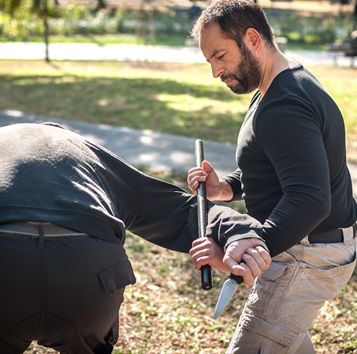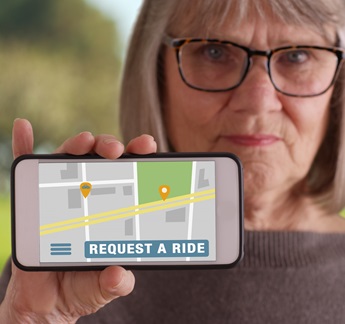A Guide to College Campus Safety: Empowering Students to Stay Safe
 College is an exciting chapter in a student’s life, filled with new experiences, friends, and challenges. However, along with these positive aspects, students also face a unique set of safety concerns that they may not have encountered before. College campuses, despite their vibrant and intellectual environments, can present potential risks. To ensure a smooth, enjoyable, and safe college experience, students must be proactive about their personal security.
College is an exciting chapter in a student’s life, filled with new experiences, friends, and challenges. However, along with these positive aspects, students also face a unique set of safety concerns that they may not have encountered before. College campuses, despite their vibrant and intellectual environments, can present potential risks. To ensure a smooth, enjoyable, and safe college experience, students must be proactive about their personal security.
This guide explores essential strategies for college campus safety, offering practical advice to help students stay vigilant and protected.
1. Familiarize Yourself with Campus Resources
Every college campus has safety resources in place to protect its students. At the beginning of the semester, take time to familiarize yourself with what’s available. This can include:
-
Campus Security Office: Know the location, phone number, and operating hours of campus security. Many campuses also have emergency phones installed across the campus that connect directly to security.
-
Blue Light Systems: These emergency call boxes are scattered across many campuses. They allow students in distress to quickly summon campus police by pressing a button. Locate these call boxes as soon as you move in.
-
Health and Counseling Centers: Access to physical and mental health resources is crucial for overall well-being. Knowing how to contact these services ensures you can get help when needed.
-
Campus Safety Apps: Many universities offer mobile apps designed for student safety. These apps often include emergency contact features, real-time safety alerts, and location sharing with friends.
2. Stay Alert and Trust Your Instincts
One of the most important aspects of personal safety is awareness. College students often get engrossed in their busy schedules or digital devices, making them less aware of their surroundings. Staying vigilant can prevent many unfortunate incidents.
-
Avoid Distractions: Walking around campus with headphones or staring at your phone can make you an easy target. Be aware of who and what is around you, especially at night or in less populated areas.
-
Listen to Your Gut: If something feels off, it probably is. Trusting your instincts is a powerful tool in staying safe. Whether it's avoiding a dark path or leaving an uncomfortable situation, always prioritize your well-being.
3. Travel in Groups
There’s safety in numbers. Whether you're heading to class, a party, or grabbing a late-night snack, it’s always safer to travel with friends.
-
Buddy System: Establish a buddy system, especially for nighttime outings. Arrange to leave and return with the same group to ensure no one is left behind.
-
Walking Escorts: Many colleges offer escort services for students walking alone late at night. If you’re studying late at the library or attending a night class, utilize these services to get back to your dorm safely.
4. Secure Your Personal Belongings
Theft is one of the most common campus crimes. While colleges are generally safe spaces, students should remain vigilant about securing their belongings.
-
Lock Your Dorm Room: Always lock your door, even if you're just stepping out for a moment. Unlocked doors are an easy opportunity for theft.
-
Keep Valuables Out of Sight: Laptops, smartphones, and other electronics are prime targets for thieves. When not in use, store these items in secure places and avoid leaving them unattended in public spaces like libraries or cafeterias.
-
Bike Safety: If you use a bike to get around campus, invest in a sturdy lock. Lock your bike in designated areas and avoid leaving it in secluded spots.
5. Use Safe Transportation
Whether you’re commuting to campus or attending off-campus events, using safe transportation methods is essential.
-
Campus Shuttles: Many universities offer shuttle services to transport students around campus or to nearby locations. Use these services, especially at night, instead of walking alone.
-
Ride-Share Safety: Ride-sharing apps like Uber or Lyft are popular with college students. Always confirm that the vehicle matches the information on the app and ask the driver to confirm your name before getting in. Share your ride details with friends or family for an extra layer of safety.
-
Public Transportation: If you’re using public transit, stay alert and avoid isolated stations late at night. If possible, sit near the driver or other passengers and avoid distractions like listening to music with both earbuds in.
6. Know and Follow Campus Safety Protocols
Many campuses have specific safety protocols to deal with emergencies such as fires, natural disasters, or active shooter situations. Make sure you are familiar with these procedures.
-
Emergency Drills: Participate in any campus-wide emergency drills and know the evacuation routes for your dorm, classrooms, and other frequented buildings.
-
Emergency Alerts: Sign up for campus alert systems, which will notify you of any imminent threats or emergencies. These notifications can be crucial in rapidly changing situations, allowing you to take appropriate actions.
7. Take Advantage of Self-Defense Resources
Many universities offer self-defense classes, workshops, or even physical education courses focused on personal safety. These classes can teach you effective techniques for defending yourself in various situations.
-
Self-Defense Classes: Taking a self-defense class can empower you with the confidence and skills to protect yourself. Some campuses offer free or discounted classes, and they’re a great way to meet new people while learning important life skills.
-
Pepper Spray or Other Safety Tools: Depending on your campus regulations and local laws, consider carrying personal safety tools like pepper spray, stun gun, safety whistle. These items are easy to carry and can be highly effective in deterring potential threats.
8. Build a Network of Trusted Friends
Your friends can play an important role in your overall safety. Building a strong support system of people who can look out for each other is essential.
-
Stay Connected: Check in with your roommates or close friends if you’re going somewhere unfamiliar or staying out late. Share your plans and ensure someone knows where you are.
-
Develop a Code Word: In potentially dangerous or uncomfortable situations, having a code word you can text to a friend can alert them that you need help. This discreet method can be useful when you need someone to intervene without drawing attention.
9. Be Cautious with Alcohol and Parties
While parties are part of the social scene for many students, it’s important to approach them responsibly.
-
Limit Alcohol Intake: Excessive drinking can impair your judgment and make you vulnerable. Know your limits and always have a plan to get home safely.
-
Don’t Accept Drinks from Strangers: If you didn’t see where the drink came from or who made it, don’t accept it. It's always safer to stick to drinks you’ve prepared yourself.
Conclusion
Safety on a college campus is about more than just knowing the resources available — it’s about being aware, prepared, and proactive. While campus life is an exciting adventure, taking steps to protect yourself ensures that you can focus on the experiences that make college so rewarding. By following these safety tips, you can enjoy your time on campus while staying vigilant and secure.
See cost of pepper sprays, personal alarms, door-stop alarms, tactical flashlights, keychain defense tools
Company Info
Customer Service
Product Information
- TASER® and Stun Devices Regulations by State
- TASER® Safe Escape Product Replacement Guarantee
- TASER® Comparison Chart
- TASER® User Manuals
- TASER® Warranty Info
- Byrna Product Catalog
- PepperBall Manuals & Spec Sheets
- Pepper Spray Laws
- Air Gun Laws
- States that Restrict Automatic and Butterfly Knives
- Our Print Catalog



































































